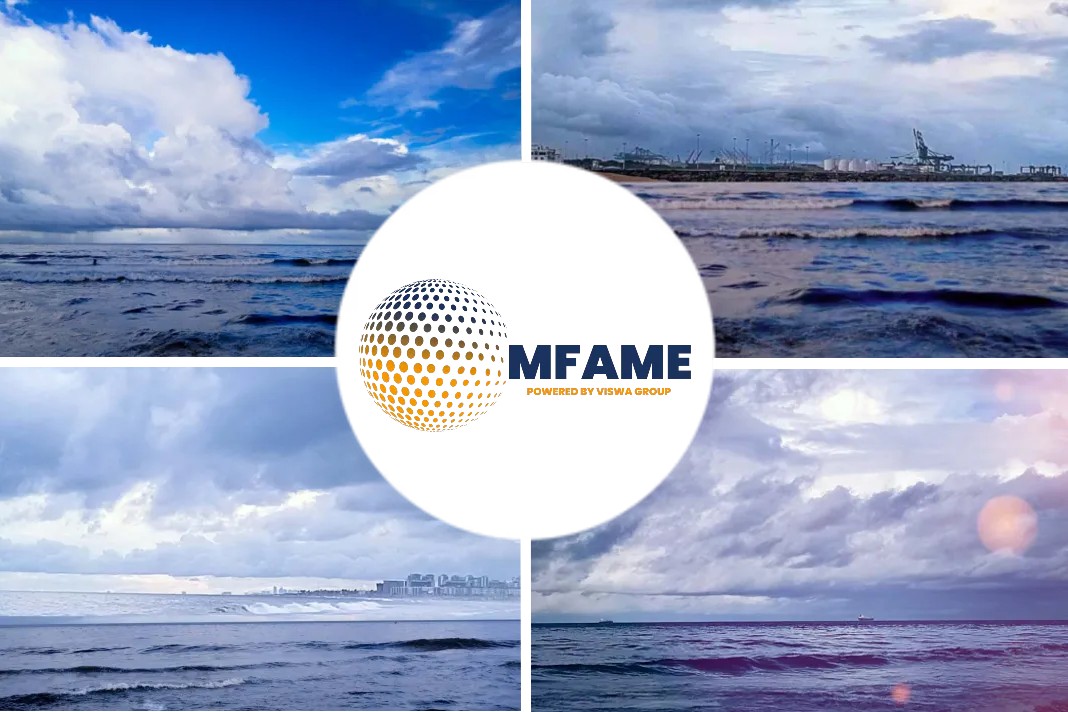- Some 80 ships remain blocked in Ukraine and the evacuation of most of their crew members means more mariners are needed in the region to get the cargoes moving.
Finding enough seafarers willing to sail ships stuck inside Ukraine’s ports is set to pose a major challenge to the proposed grains corridor designed to ease an international food crisis, says an article published in MalaysiaNow.
Black sea blockage
Russia and Ukraine last week signed a deal to restart grain and fertiliser exports that have been blocked in the Black Sea and on Wednesday Turkey unveiled a centre to coordinate the resumption of shipments.
But some 80 ships remain blocked in Ukraine and the evacuation of most of their crew members means more mariners are needed in the region to get the cargoes moving.
Henrik Jensen, managing director of Danica, which specialises in providing crew for ships in Ukraine and eastern Europe, said it may be hard to find people willing to go.
“The main concern at the moment is the security of crew members,” he said.
Seafarers personal risk
At the start of the conflict in late February approximately 2,000 seafarers from all over the world were stranded aboard 94 vessels in Ukrainian ports.
Around 450 are left on the estimated 80 vessels remaining, mainly dry bulk ships that carry grain, but also other cargo vessels transporting other commodities, according to data from UN shipping agency the International Maritime Organization (IMO) and from shipping sources.
Under last week’s UN-brokered deal, the first shipments of Ukrainian grain could leave Black Sea ports within days in theory.
But few seafarers are expected to be ready to travel to the region until they see the safe passage of the first ships, which will have to be guided round sea mines.
Two merchant sailors have died and seven commercial vessels have been hit by projectiles – with two sunk – around Ukraine’s coast since the war started on Feb 24.
“Until national navies assist the Ukrainian authorities to sweep these mines and create a safe corridor, seafarers will face significant personal risk sailing through these stretches of water,” Stephen Cotton, General Secretary of the International Transport Workers’ Federation (ITF), told Reuters.
London’s insurance market has placed the entire region on a separate high-risk list, meaning soaring costs for shipments.
Juan Luciano, chief executive of multi-national food and commodities company Archer-Daniels-Midland, told an earnings call on Tuesday there were “issues about insurance” and financial guarantees, as well as problems of fuel and getting crews in place.
But he said, with time, the grain should start moving.
“At the beginning, you’re going to see a little bit of a trickle down of exports, maybe smaller boats. It’s going to take a little bit of building confidence that this works before you can put the bigger boats,” he said.
Local staff
Initially, many of the ships will be need to be backed up by Ukrainians, four industry sources said, asking not to be named because of the sensitivity of the issue.
They said finding enough local seafarers would also be a challenge.
Some local Ukrainian seafarers that have kept the ships maintained have faced difficulties because of restrictions on nationals leaving the country in case they are needed for military service.
Mykhailo Podolyak, adviser to President Volodymyr Zelensky’s head of staff, told Reuters there were some restrictions on Ukrainians leaving the country. He said a mechanism with the Ministry of Infrastructure and the Border Guard Service had been set up to deal with the issue, but did not give details.
Russian seafarers will not be used due to security concerns by Ukraine, the sources said.
The Kremlin declined to comment and referred the question to Russia’s Defence Ministry, which did not immediately respond to a request for comment.
One of the industry sources said it could be easier for fresh ships with crew to sail in and out of the Black Sea ports, provided there were berths, but much work needed to be done to clarify the situation.
“Those crews who will go in may also wish to have enhanced payments. So many questions still to be addressed,” the source added.
The ITF – the main seafarers’ union association – and partners have added waters around Ukraine and its ports to their high-risk areas, meaning that seafarers have the right to decline a shipping assignment into the area.
If they accept it, they are entitled to double basic daily wages and double compensation for disability and death, the ITF says.
High price
While the stakes are high for the seafarers, the implications for world markets are also major.
Before Russia’s invasion, which it calls a “special military operation”, began on Feb 24, Ukraine and Russia accounted for around a third of global wheat exports.
The invasion sent food prices soaring, stoking a global food crisis the World Food Programme says has pushed some 47 million people into “acute hunger”.
The ITF says it is committed to making the grain corridor a success but equally to the safety of its members.
“We would expect to establish clear criteria on both safety and risk to crew, alongside our social partners the shipowners and maritime employers,” the ITF’s Cotton said.
Together with affiliated unions, it has written to the Ukrainian government urging President Zelenskiy to allow Ukrainian seafarers “dispensation from compulsory military service”.
Ukrainian seafarers make up 4% of the total global mariner workforce of 1.89 million sailors, according to trade associations the International Chamber of Shipping and BIMCO.
“If large numbers of Ukrainian seafarers are unable to be deployed for new contracts, or choose to return home, then we need to work with our affiliates in other nations to help make up the shortfall,” Cotton said.
Did you subscribe to our daily Newsletter?
It’s Free! Click here to Subscribe
Source: Malaysia Now

















